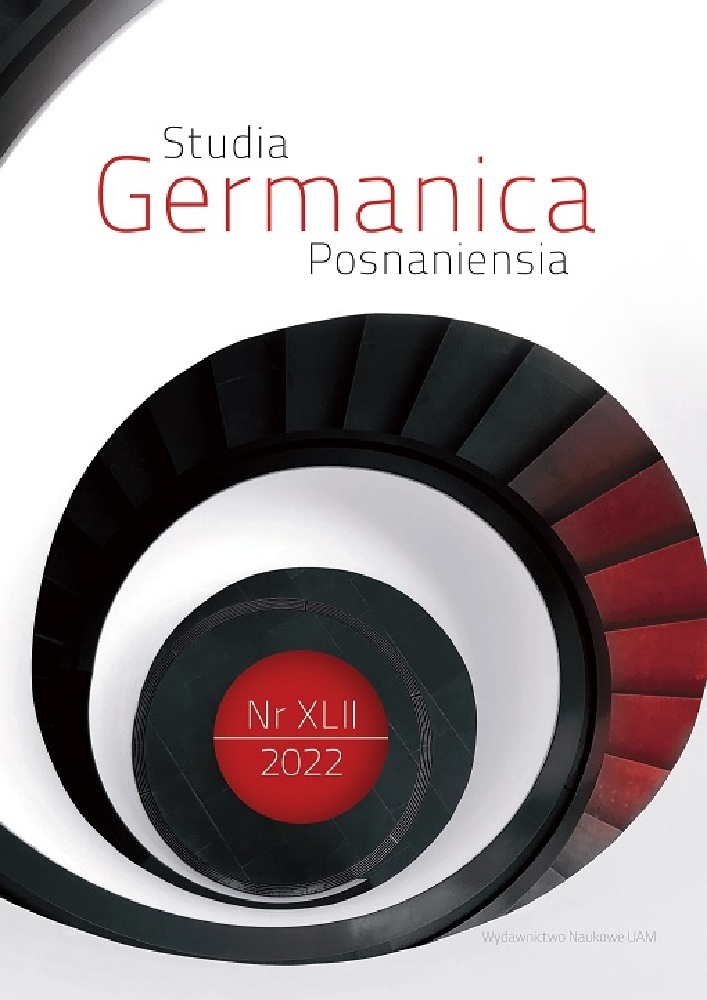Abstract
Using insights from the field of material ecocriticism, this article examines how human subjects in Christoph Ransmayr’s Morbus Kitahara and Karen Duve’s Regenroman, relate to their dynamic material environment. The literary imagination allows us to acknowledge the interconnectedness of humans, waste and nature by revealing the human subject as part of networks of distributed agents.
Traditionally, man’s supposed superiority was achieved through dualisms: cultural activities were assigned to the realm of the active, while the material environment was considered to be passive. In both novels, intermediate characters are introduced who escape these dualisms and, by doing so, illustrate the interconnectedness with their environment. Furthermore, dualistic thinking is also destabilized by drawing attention to the materiality of the human body itself.
References
Alaimo, S. (2010). Bodily natures. Science, environment, and the material self. Bloomington: Indiana UP.
Boa, E. (2006). Lust or Disgust? The Blurring of Boundaries in Karen Duve’s ‘Regenroman’. In H. Bartel & E. Boa (Hrsg.), Pushing at Boundaries. Approaches to contemporary German Women Writers from Karen Duve to Jenny Erpenbeck (S. 57-72). Amsterdam: Rodopi. DOI: https://doi.org/10.1163/9789401203265_007
Crutzen, P. & Stoermer, E. (2000). The Anthropocene. Global Change Newsletter, 41, 17-18.
Duve, K. (2005). Regenroman. Frankfurt a. M.: List Taschenbuch Verlag.
Haraway, D.J. (2003). The companion species manifesto. Dogs, people, and significant otherness. Chicago: Prickly Paradigm P (=Paradigm).
Haraway, D.J. (2004). A Manifesto for Cyborgs: Science, Technology, and Socialist Feminism in the 1980s. In D.J. Haraway (Hrsg.), The Haraway Reader (S. 7-45). New York: Routledge.
Iovino, S. & Opperman, S. (2014). Material Ecocriticism. Bloomington: Indiana UP.
Koch, J. (2020). Of Slugs and Wo/men: Permeated and Penetrated Boundaries in Karen Duve’s ‘Regenroman’. The Modern Language Review, 115 (3), 665-681. DOI: https://doi.org/10.1353/mlr.2020.0184
Kristeva, J. (1982). Powers of Horror. An Essay on Abjection. New York: Columbia UP.
Landa, J. (1998). Fractured Vision in Christoph Ransmayr’s ‘Morbus Kitahara’. The German Quarterly, 71 (2), 136-144. DOI: https://doi.org/10.2307/407871
Latour, B. (1996). On actor-network theory. A few clarifications. Soziale Welt, 47, 369-381.
Ludden, T. (2006). Nature, Bodies and Breakdown in Anne Duden’s ‘Das Landhaus’ und Karen Duve’s ‚Regenroman‘. In H. Bartel & E. Boa (Hrsg.), Pushing at Boundaries. Approaches to contemporary German Women Writers from Karen Duve to Jenny Erpenbeck (S. 41-56). Amsterdam: Rodopi. DOI: https://doi.org/10.1163/9789401203265_006
Morrison, S. (2013). Waste Aesthetics: Form as Restitution. Interdisciplinary Studies in Literature and Environment, 20(3), 464-478. DOI: https://doi.org/10.1093/isle/ist057
Morton, T. (2012). Ecological Thought. Cambridge: Harvard UP. DOI: https://doi.org/10.2307/j.ctvjhzskj
Nitzke, S. (2014). Nach der Katastrophe. Müll zwischen Natur und Kultur bei Kluge, Sebald, Ransmayr und Kracht. Zeitschrift für Deutsche Philologie. Entsorgungsprobleme: Müll In Der Literatur, 285-308.
Ohrlinger, H. (1995). Durch das Fernglas hindurch. Die Presse, 15.
Ransmayr, C. (1995). Morbus Kitahara. Frankfurt a. M.: Fischer.
Richards, A. (2018). ’Ob Mädchen oder Hunde‘: Women and Animals in Karen Duve’s ‚Regenroman‘. German Life and Letters, 71 (4), 495-510. DOI: https://doi.org/10.1111/glal.12210
Scanlan, J. (2005). On Garbage. London: Reaktion Books Ltd.
Schirrmacher, F. & Walser, M. (1998). Friedenspreis des deutschen Buchhandels 1998. Laudatio von Frank Schirrmacher und Dankesrede von Martin Walser. Börsenverein des Deutschen Buchhandels. Abgerufen von https://web.archive.org/web/20130618172646/http://www.friedenspreis-des-deutschen-buchhandels.de/sixcms/media.php/1290/1998_walser.pdf.
Serres, M. (2011). Malfeasance. Appropriation Through Pollution?. Stanford: Stanford UP.
Snyder, G. (1990). The Practice of the Wild. Washington DC: Shoemaker Hoard.
Sullivan, H. (2012). Dirt Theory and Material Ecocriticism. Interdisciplinary Studies in Literature and Environment, 19 (3), 515-531. DOI: https://doi.org/10.1093/isle/iss067
Sullivan, H. (2015). New Materialism. In G. Dürbeck & U. Stobbe (Hrsg.), Ecocriticism. Eine Einführung (S. 57-67). Köln (u.a.): Böhlau Verlag. DOI: https://doi.org/10.7788/9783412502393-004
Walser, M. (1998). Erfahrungen beim Verfassen einer Sonntagsrede – Friedenspreis des Deutschen Buchhandels 1998. Frankfurt a. M.: Suhrkamp.
License
Copyright (c) 2022 Hanne Janssens

This work is licensed under a Creative Commons Attribution-NoDerivatives 4.0 International License.
